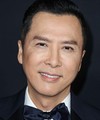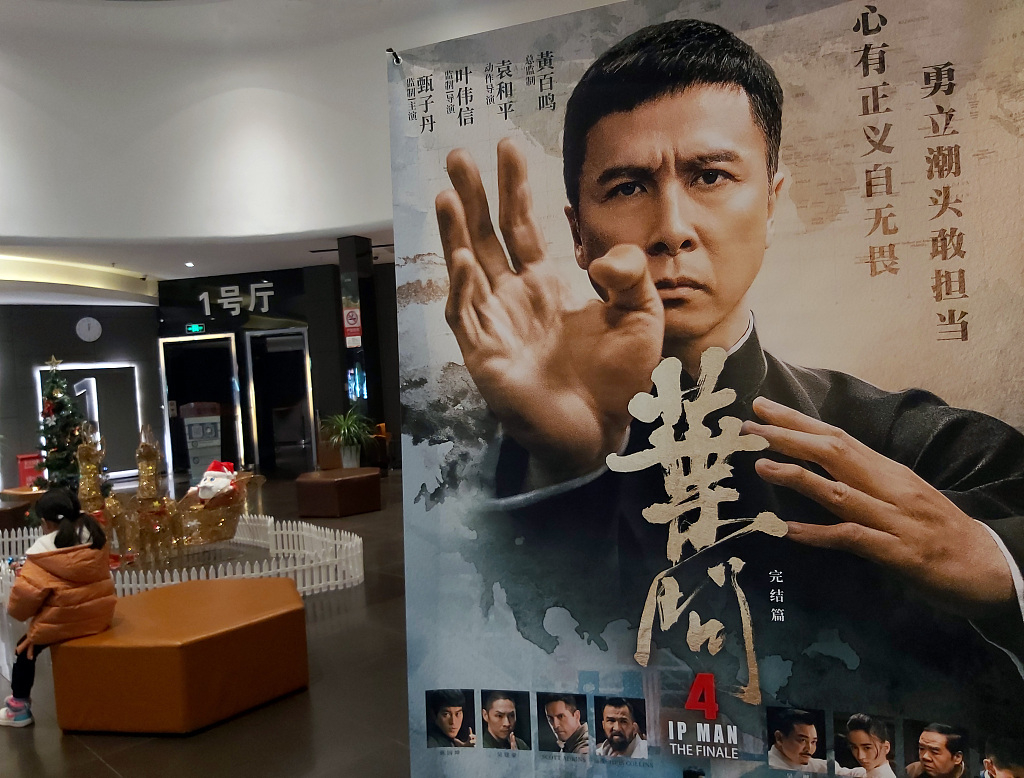
After overpowering them at the apartment, Ip and his family flee and hide in Li's house. When Ip does not return to the arena, Miura sends Sato, along with several soldiers, to track Ip down.

After the fight, Ip confronts Yuan and gives him his brother's tin after informing him of his brother's death. The workers are able to stall the gang when they return, as Ip arrives to defeat Jin and Yuan, now a part of the gang. Ip agrees to train the workers in Wing Chun for self-defence. Jin Shanzhao, a highly-skilled Northern Chinese martial arts master who once defeated all the masters in Foshan except Ip, now leads a bandit gang and harasses the workers at a cotton mill run by Chow Ching-chuen. Ip collects Liu's bag of rice and gifts it to his surviving family. His skill arouses the interest of Miura, who seeks to see Ip fight again. Deducing that Lin was killed in his fight against Miura, Ip demands a match with ten karateka at once, whom he brutally defeats. Ip at first declines to participate but when Lin goes missing, he agrees to join and investigate.Īt the arena, Ip witnesses Liu being mercilessly executed by Miura's deputy Colonel Sato, for picking up a bag of rice from a prior victory after giving up a second match against 3 karatekas. Former police officer Li Zhao, now an interpreter for the Japanese, offers the martial artists to fight in the arena. General Miura, a Japanese Karate master, sets up an arena where Chinese martial artists fight with his military trainees for a bag of rice.

Desperate to support his family, Ip works at a coal mine alongside Lin, who hopes to reconcile with his brother for humiliating him but fails to track him down. While spreading the news, his brother Lin, a restaurant owner and disciple of Liu, embarrasses Yuan as he tries to arrange a rematch between Liu and Ip.ĭuring the Second Sino-Japanese War, Ip and his family are forced to move into a decrepit apartment as the Imperial Japanese Army confiscates the house for their military headquarters. One day, a troublemaker Yuan, while retrieving his kite, witnesses Ip defeating fellow kung fu Master Liu in a friendly sparring match. Ip Man, the most skilled martial artist, maintains a low profile while engaging with the other martial artists through friendly, closed-door competitions. In 1935, Foshan is a hub of Southern Chinese martial arts, where the various schools' students compete against each other. Following its success, the film was nominated for 12 Hong Kong Film Awards, winning awards for Best Film and Best Action Choreography. Ip Man grossed over US$21 million worldwide, despite not being released in North America and most of Europe. Before the film's release, Raymond Wong announced that there would be a sequel a second installment titled Ip Man 2, was released in April 2010, a third installment titled Ip Man 3 was released in 2015, and Ip Man 4: The Finale was released in 2019. It premiered in Beijing on 10 December 2008, and was released theatrically in Hong Kong on 19 December 2008, receiving widespread acclaim from critics and audiences. Ip Man is the first film in the Ip Man film series. It is the last film to be distributed by Mandarin Films. It is a co-production between China and Hong Kong. The supporting cast includes Simon Yam, Lynn Hung, Lam Ka-tung, Xing Yu, Hiroyuki Ikeuchi and Tenma Shibuya. The film was directed by Wilson Yip, and stars Donnie Yen as Ip Man, with martial arts choreography by Sammo Hung. The film focuses on events in Ip's life that supposedly took place in the city of Foshan during the Sino-Japanese War.

Ip Man (Chinese: 叶问 / 葉問) is a 2008 Hong Kong biographical martial arts film based on the life of Ip Man, a grandmaster of the martial art Wing Chun and teacher of Bruce Lee.


 0 kommentar(er)
0 kommentar(er)
